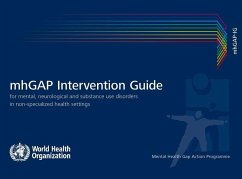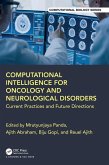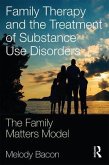The mhGAP Intervention Guide (mhGAP-IG) for Mental, Neurological and Substance-use Disorders for Non-specialist Health Settings is a technical tool developed by WHO to assist in implementation of mhGAP. The Intervention Guide has been developed through a systematic review of evidence followed by an international consultative and participatory process. The mhGAP-IG presents integrated management of priority conditions using protocols for clinical decision-making. The priority conditions included are: depression, psychosis, bipolar disorders, epilepsy, developmental and behavioral disorders in children and adolescents, dementia, alcohol use disorders, drug use disorders, self-harm/suicide, and other significant emotional or medically unexplained complaints. The mhGAP-IG is a model guide and has been developed for use by health-care providers working in non-specialized health-care settings after adaptation for national and local needs.
Bitte wählen Sie Ihr Anliegen aus.
Rechnungen
Retourenschein anfordern
Bestellstatus
Storno







